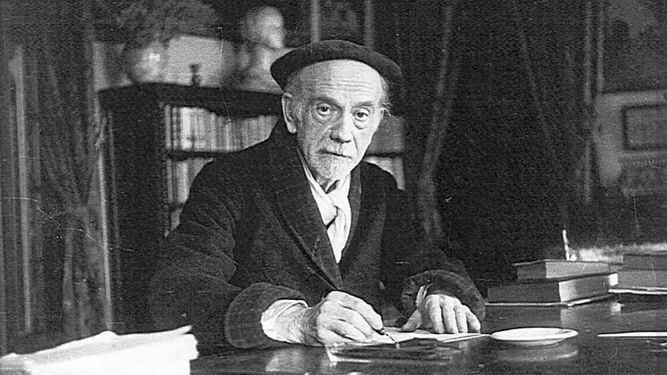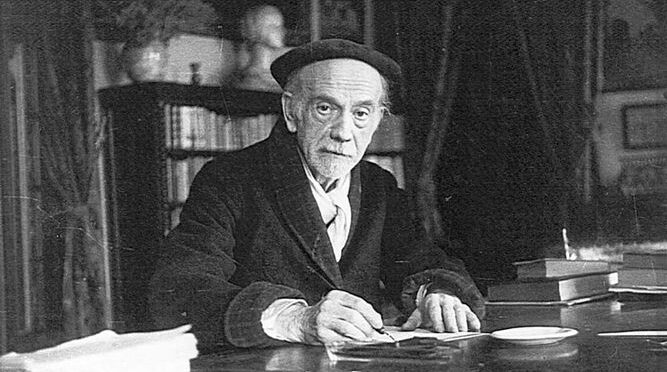No Basque has won the Nobel Prize for literature. If there was ever a strong candidate, it might have been Pío Baroja y Nessi. He was a prolific writer whose influence extended to Nobel Prize winners such as Ernest Hemingway. However, he simply didn’t have the desire for self-promotion. He just wanted to write. His writing was controversial, and many of his books were banned by the Franco regime.

- Baroja was born in Donostia on December 28, 1872. His father, Serafin Baroja, was a mining engineer who also had an artistic soul, writing operas and penning books of Basque songs. Pío started down a technical path, even receiving his doctorate in medicine in 1893, but soon shifted to letters and books. As a practicing doctor in Zestoa, he realized he had no interest in or aptitude for medicine. Further, his return to the Basque Country (he had studied medicine in Madrid and Valencia) rekindled a love of his homeland.
- After a stint as a baker in Madrid, he decided to dedicate himself to literature, even though there was little prospect of making a decent life as a writer. “I already understood that trying out literature would give little pecuniary result, but in the meantime I could live poorly, but with enthusiasm. And I decided to do so.” With little taste for the public relations that was becoming ever more necessary for success, he purchased a home in secluded Bera from which he worked and hosted his nephew Julio Caro Baroja.
- After the Spanish Civil War erupted, Baroja escaped to France. He tried unsuccessfully to make his way to the United States. Instead, he ultimately returned to Spain, where he continued to write. At the time of his death, on October 30, 1956, he had written over 100 literary works. Franco banned nearly all of his books.
- Baroja’s first novel was La casa de Aizgorri. The first in his La Tierra Vasca trilogy, La casa de Aizgorri is about a petty bourgeois who struggles to keep his family business going. Perhaps his most famous work is El árbol de la ciencia (The Tree of Knowledge). The main character, Andrés Hurtado, is a doctor much like Baroja was who struggles to live in a world that he finds disgusting. Baroja’s books are often characterized as not having much plot, but having interesting characters. He captures the random events of life without trying to put his characters into some bigger plot. He also captured the pessimistic tone of a world that changed greatly during his lifetime, including two world wars and the Spanish Civil War.
- Baroja was an anarchist. In one of his books, he stated “In the first place, I am an enemy of the Church; in the second place, I am an enemy of the State.”
- Many other authors were influenced by Baroja, including Ernest Hemingway, who once told Baroja that Baroja deserved a Nobel Prize more than he did. While he was nominated for one, Baroja died before ever being selected.
Primary sources: Pelay Orozco, Miguel [et al.]. Baroja y Nessi, Pío. Auñamendi Encyclopedia. Available at: https://aunamendi.eusko-ikaskuntza.eus/en/baroja-y-nessi-pio/ar-11319/; Pío Baroja, Wikipedia.
Discover more from Buber's Basque Page
Subscribe to get the latest posts sent to your email.



I have read only one of his books: “Pilotos de Altura”.
I found it interesting and instructive.
I haven’t read any of his works yet, but after learning a bit more about him, I’m intrigued. I hope to get to one or two sometime…